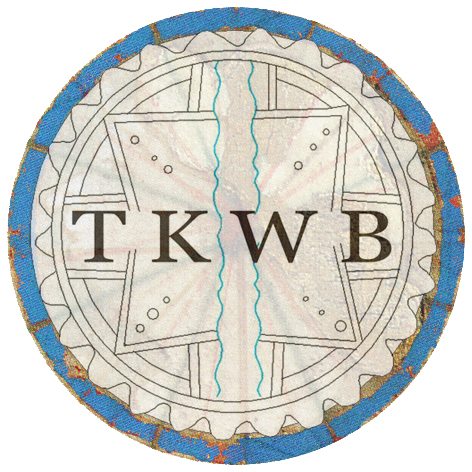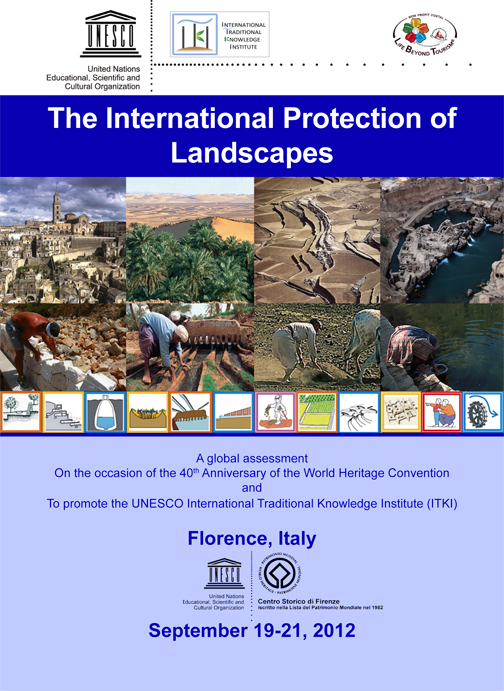TKWB
About TKWB
 The idea of creating the TKWB was born when UNESCO launched a global programme for a techniques inventory assigned to IPOGEA Research Centre on Traditional and Local Knowledge. The main targets are the firms, the natural areas and the historical centres which will be assigned quality trademarks and acknowledgements of international excellence in production or use of good practices and innovative solutions. Each technology, proposition and experience achieved will provide a spinoff on an international scale and each good practice will contribute to safeguarding the whole planet. In June 1999, UNESCO and the ICSU International Council for Science agreed upon the following statement:
The idea of creating the TKWB was born when UNESCO launched a global programme for a techniques inventory assigned to IPOGEA Research Centre on Traditional and Local Knowledge. The main targets are the firms, the natural areas and the historical centres which will be assigned quality trademarks and acknowledgements of international excellence in production or use of good practices and innovative solutions. Each technology, proposition and experience achieved will provide a spinoff on an international scale and each good practice will contribute to safeguarding the whole planet. In June 1999, UNESCO and the ICSU International Council for Science agreed upon the following statement:
“As a result of the UN Conference on the Environment and Development in Rio de Janeiro, in 1992, Traditional Knowledge indicated as Endogenous Sound Technologies (ESTs) is described in chapter 34 of Agenda 21 as technologies that have produced positive results on the environment compared to other technologies. These protect the environment, are less polluting, use resources in a sustainable way, recycle most of their refuse and products, and dispose of all residues in an environmentally acceptable way, better than the technologies they replace. They do not constitute “individual technologies but a whole system that includes know-how, procedures, goods, and services and equipment as well as organisation and management procedures"
Thanks to UNESCO’s contribution a prototype system, was developed and presented during the UNCCD Nairobi Conference in October 2005.
It is possible to consult a dynamic questionnaire based on the Iconographic classification System of Traditional and Innovative Techniques (SITTI) and constitutes a guideline for the recognition and notification of new knowledge.
The information (texts, graphics, photographs) is placed, through geo-reference, in a Geographical World Map
System.
In September 2012 the TKWB has been presented in the Conference “The international protection of Landscapes” held in Florence and promoted by UNESCO-ITKI.
TKWB philosophy and aims
Today, while the entire planet systems risk ecological collapse, it is fundamental to preserve Traditional Knowledge, which shows how to interact with the environment enhancing its potential resource without exhausting it. Traditional Knowledge is in danger and its disappearance would not only cause the loss of people’s capability to keep and pass on the cultural and natural heritage, but also of an extraordi¬nary source of knowledge and cultural diversity from which appropriate innovative solutions can be derived today and in the future. TKWB promotes Traditional Knowledge as advanced innovative knowledge appropriate to elaborate a new technological paradigm based on the progressive values of tradition: the capability of enhancing a society's internal resources and managing them at a local level; the versatility and the interpenetration of technical, ethical and aesthetic values; the production not but for the long-term benefit of the community. Activities are based on the principle according to which each has to enable another one without leaving behind waste; energy use is based on cycles in constant renewal; the purpose, including economic interest, is to protect the ecosystems, the cultural complexity and diversity and all living beings. The project aims to prefigure a new model of development and a technological dimension connected with historical memory. The TKWB connects the demand of appropriate techniques from the sites with an exceptional value, the urban ecosystems and the protected areas with the offer of firms operating in this sector. The sites with an exceptional value get acknowledgment on an international scale by adopting the protocols of usage of the appropriate techniques. The firms certified by the TKWB provide the necessary technologies. As a result, the long-term protection of places which will be not allowed to insert processes, techniques, materials and destructive transformations is guaranteed. At the same time a network of firms working for sustainability is promoted. The Traditional Knowledge World Bank safeguards the rights of those local populations who are knowledge holders. It not only classifies knowledge, but also assigns community intellectual property rights to populations and knowledge holders and operates an international law protection.
The Traditional Knowledge World Bank is also an economic actor. Companies that reintroduce traditional techniques in innovative ways or who look for appropriate solutions will be selected.
The TKWB connects the demand for particular techniques for intervention on valuable sites, urban ecosystems and protected areas with the companies who work in these sectors. Valuable sites gain international recognition by adopting the protocols for the use of the appropriate techniques.
A long-term protection of the sites is consequently guaranteed since it will not be possible to insert destructive processes, technologies or materials. Therefore, a network of companies oriented towards sustainability will be implemented.
For companies, old city centres, and parks to seize this challenge means confronting processes, cognitions and capabilities that will be increasingly requested at an international level, anticipating necessary solutions for sustainable development and gaining attractiveness for cultural tourism and a useful image for the international success of its products.